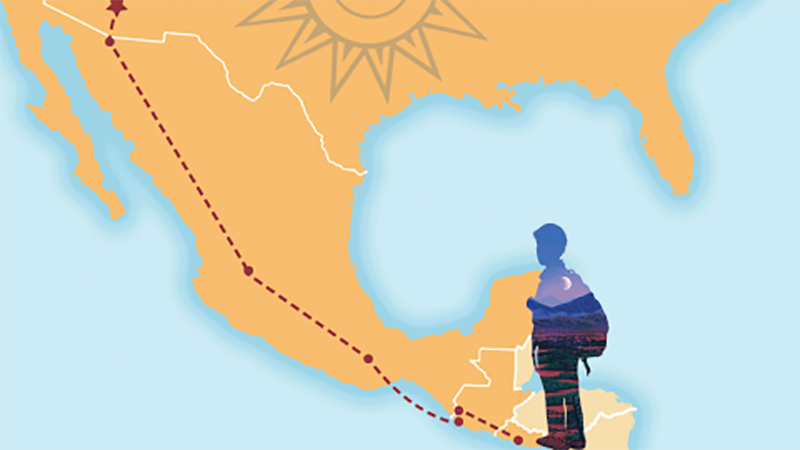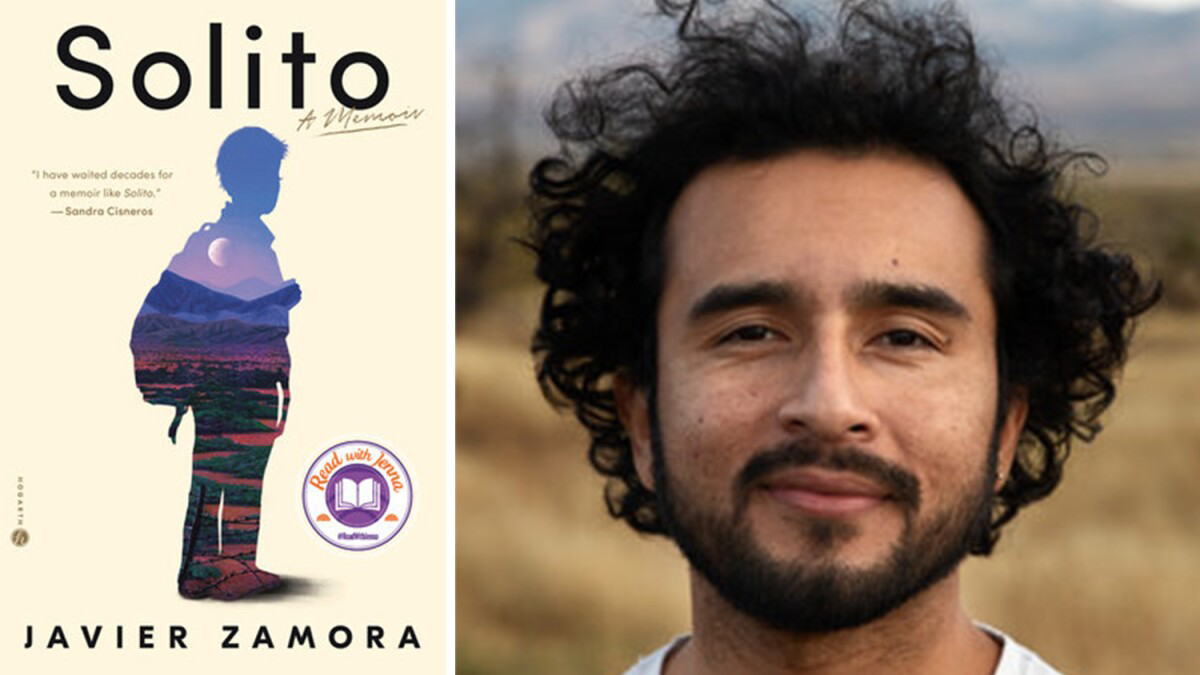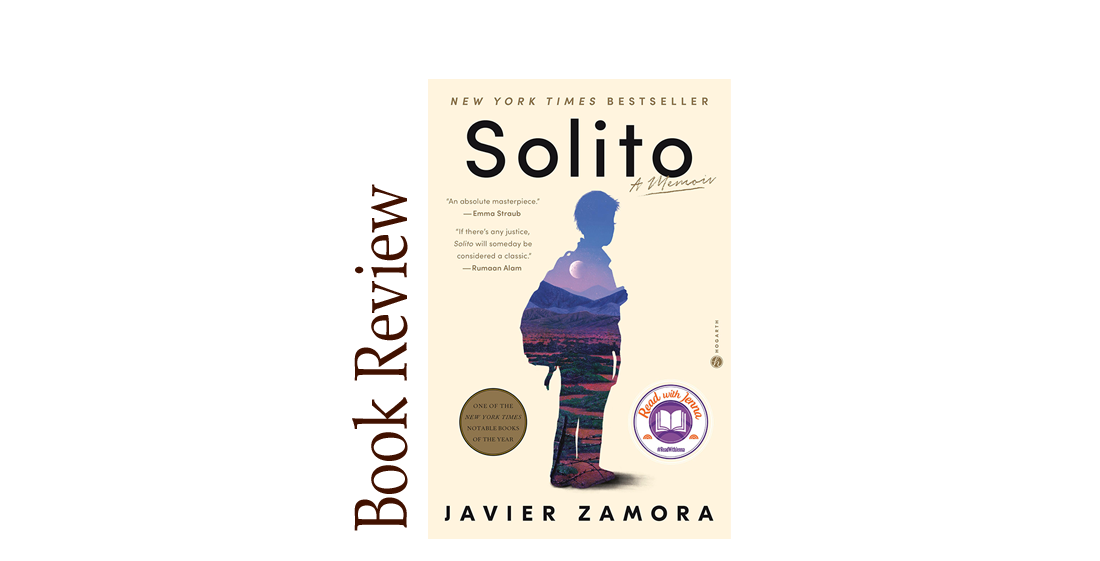- Date Published:
2022 - Length:
416 pages—Listening Time: 17 hrs 8 minutes - Genre:
Memoir - Setting:
1999-Spring and early summer: El Salvador, Guatemala, Mexico, and the United States - Awards:
Los Angeles Times Book Prize Winner Christopher Isherwood Prize 2022, American Book Award 2023, Alex Award 2023; Andrew Carnegie Medals for Excellence in Fiction and Nonfiction Longlist Nonfiction 2023; Southwest Books of the Year Top Picks 2023; Chautauqua Prize Shortlist 2023; BookTube Prize Quarterfinalist Nonfiction 2023; Goodreads Choice Awards Nominee Memoir & Autobiography 2022; PEN/John Kenneth Galbraith Award for Nonfiction Finalist 2023; PEN Oakland/Josephine Miles Book Award 2023;
NPR: Books We Love 2022; Amazon.com Best Books 2022; The New York Times Notable Books of the Year Nonfiction Memoir 2022; San Francisco Chronicle Best Book of the Year Memoir 2022 - Language:
Translated into 7 languages: Catalan, Dutch, English, French, German, Latin, Spanish - Sensitive Aspects:
Psychological trauma, child endangerment, exploitation by coyotes, physical hardship and life-threatening danger, loss of innocence, dehumanizing of migrants - Movie:
While there isn't widespread news of an official movie deal for Solito, there are rumors of potential adaptations and interest in the story. - Recommend for Book Club:
Yes, for groups that enjoy real life fiction

Solito by Javier Zamora is a brilliantly written, profoundly emotional memoir with a necessary, humanizing viewpoint on migration. It is a tale of survival, resilience, and the quest for family that speaks eloquently beyond the details of Zamora's path; it is both tragic and uplifting. Anyone grappling with the reality behind the migratory headlines should make this book a mandatory read.
Before reading this book, I believed I had a reasonable understanding of the challenges faced by people who choose to immigrate to the United States. I didn't. People often label immigrants as "less than" humans. They are not. The United States, which began as a land that welcomed all peoples, has made obtaining a US visa extremely difficult. Long waits and significant expenses result in the denial of most applications. As a result, many turn to irregular migration, often hiring "coyotes" (smugglers) to guide them across borders.
This was the case of 9-year-old Javier Zamora in 1999, when he left the loving home of his grandparents in El Salvador to be reunited with his parents in California. And he made this journey "solito," which in Spanish means alone.

"Solito" by Javier Zamora is a memoir that recounts the harrowing journey of a nine-year-old boy traveling alone from his small town in El Salvador to the United States to reunite with his parents after four years apart. The narrative begins in La Herradura, El Salvador, in 1999, where Javier prepares for his departure, saying goodbye to his grandparents and receiving blessings before embarking on the perilous 3,000-mile trip through Guatemala and Mexico.

The memoir vividly portrays the paradoxes and dangers of the journey. At times, Javier and his fellow migrants travel on comfortable buses, but they also endure the brutal desert crossing with its extreme heat and freezing nights. Along the way, Javier forms close bonds with fellow travelers Patricia, Carla, and Chino, who provide care and solidarity during the journey. Despite moments of kindness and support-such as a U.S. border patrolman who showed unexpected compassion-the journey is fraught with fear, uncertainty, and violence, including encounters with armed Mexican soldiers and the constant threat of capture.
Themes in Solito include the longing for family left behind, the resilience required to survive migration, and the complex relationships formed along the way. The desert serves as a powerful symbol of both sustenance and danger, while the memoir explores the child's perspective on migration, highlighting innocence, hope, and the struggle to understand adult decisions. Zamora's writing offers a fresh, vivid portrayal of migration, avoiding clichés and instead offering humor, lively dialogue, and emotional depth.
Ultimately, Solito is a testament to hope, solidarity, and the sacrifices made in pursuit of a better life. It captures the emotional turmoil of separation and reunion, the harsh realities of migration, and the enduring power of family and friendship.

The sight of immigrant children appearing before judges in the United States a few weeks ago broke my heart. You should read this book, if only because of the cruel relevance of current events in the US. It is a poignant and enlightening read for anyone with even a sliver of empathy for humanity, particularly children. Keep the tissues handy as you dive into this book.
From a literary stance, you should read this book because:
It Is a Vivid, Child’s-Eye View of Migration
Solito stands out for its rare and powerful perspective: Javier Zamora recounts his harrowing 3,000-mile journey from El Salvador to the United States as his nine-year-old self, immersing readers in the immediacy and emotional rawness of a child’s experience. Unlike memoirs filtered through adult hindsight, Zamora’s narration is unfiltered and intimate, capturing the confusion, fear, and fleeting moments of hope that shape a child’s understanding of a dangerous world.
It Humanizes the Immigration Debate
Zamora’s memoir transforms the often politicized and abstract topic of immigration into a deeply personal and relatable story. Instead of concentrating solely on policy or statistics, Solito encourages readers to connect with the lived reality of an unaccompanied minor, thereby bridging the divide between the unique and the universal. The book challenges the impersonal label of “unaccompanied minor,” revealing the profound humanity, resilience, and vulnerability behind the term.
It is Rich, Poetic Storytelling
Zamora’s background as a poet shines through in his prose-his descriptions are sensory, meticulous, and often lyrical. The narrative is filled with vivid imagery and carefully observed details, from the textures of the desert to the emotional landscapes of fear and fleeting comfort. His use of language, including Spanish words and phrases, adds authenticity and rhythm, making the story immersive for readers of all backgrounds.
It Resonates With Themes of Family, Loss, and Found Community
At its core, Solito is about longing for family and the sacrifices required to reunite with loved ones. The journey is not only about crossing borders but also about leaving behind home, culture, and extended family. Along the way, Zamora forms deep bonds with fellow migrants-Chino, Patricia, and Carla-who become his surrogate family, highlighting the unexpected kindness and solidarity found in hardship.
It Is a Narrative of Resilience and Hope
Despite its harrowing subject matter, Solito is filled with moments of hope, humor, and kindness. Zamora’s voice brings warmth and even levity to the darkest moments, making the story not just one of trauma, but of survival and the enduring pursuit of a better life.
It Is Relevant to Current Events
With immigration remaining a central and often contentious topic, Solito offers a necessary, humanizing counterpoint to political rhetoric. It serves as both a personal testament and a tribute to the countless others who have made similar journeys, making it essential reading for anyone seeking to understand the emotional and human dimensions of migration.


Get Javier Zamora Books
This brilliant, lyrically superb young writer and poet deserves our respect and support.
Bookshop.org was created as a socially conscious alternative to Amazon, with the goal of helping local, independent bookstores thrive. This is why Readers With Wrinkles supports their efforts. Please join us in this effort by purchasing your next read here.

If you were moved by Solito, Javier Zamora’s powerful memoir of his childhood migration from El Salvador to the United States, there are several books that offer similar themes of migration, resilience, and the search for belonging. These books range from memoirs of migration to oral histories and novels that explore the immigrant experience with similar intimacy and emotional depth.
- Solito, Solita: Crossing Borders with Youth Refugees from Central America, edited by Steven Mayers and Jonathan Freedman: This collection of oral histories features young refugees from Central America recounting their harrowing journeys north. Like Zamora’s memoir, it provides first-person perspectives on the dangers, hopes, and solidarity found along the migrant trail.
- Beautiful Country by Qian Julie Wang: A memoir about a young girl’s life as an undocumented immigrant in New York City. Wang’s account, like Zamora’s, is told through the eyes of a child, capturing both vulnerability and resilience as she and her family navigate poverty and fear in a new country.
- The Distance Between Us by Reyna Grande: Grande’s memoir recounts her childhood in Mexico, her parents’ migration to the U.S., and her eventual journey to reunite with them. It explores family separation, longing, and adaptation-key themes also found in Solito.
- The Devil’s Highway: A True Story by Luis Alberto Urrea: This nonfiction account tells the story of a group of Mexican men who attempt to cross the U.S. border through the deadly Arizona desert. Urrea’s book is a gripping, journalistic look at the peril migrants face, echoing the dangers Zamora describes.
- Unaccompanied by Javier Zamora: Zamora’s poetry collection deals with similar themes as Solito, focusing on migration, displacement, and memory. It’s a lyrical companion to his memoir.
- Barrio America by A.K. Sandoval-Strausz: A historical look at how Latino immigrants revitalized American cities, offering broader context to the individual stories in Solito.
- American Dirt by Jeanine Cummins: A novel about a mother and son fleeing cartel violence in Mexico and making the dangerous journey to the U.S. While fictional, it shares the urgency and peril of Zamora’s journey.


Comments